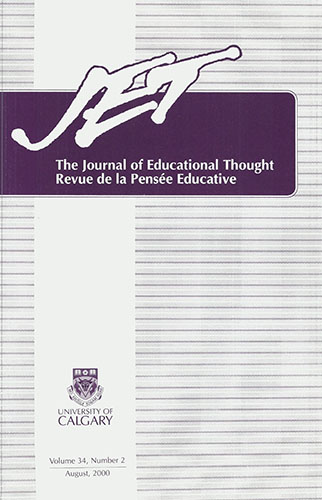Soft Disability in Schools: Assisting or Confining At Risk Children and Youth?
DOI :
https://doi.org/10.55016/ojs/jet.v34i2.52642Résumé
The aim in this article is to examine the institutional construction of soft or mild disability by special education as a process of pre-incarceration in schools. Soft disability includes the categories of specific learning disabilities (LD), speech and language impairments (SLI), emotional and behavioural disorders (EBD), and mild mental retardation (MMR). Based on Foucault's (1975/1977) view of the link between prison and delinquency and Skrtic's (1995) critical-pragmatic perspective of disability and special education , I argue that labels of soft disability reflect a process of suspending the educational and citizenship participation of disadvantaged students. Similarly to what Foucault described as the production of delinquency by the prison, special education, by applying inconsistent identification criteria, increases the occurrence of soft disability. Variation and inquiry are outlined as alternative concepts whose implementation may r e verse the negative school dynamic between soft dis ability and (p r e) incarceration.
Téléchargements
Téléchargements
Publié-e
Numéro
Rubrique
Licence
The Journal of Educational Thought retains first publication rights for all articles. The Journal grants reproduction rights for noncommercial educational purposes with the provision that full acknowledgement of the work’s source be noted on each copy. The Journal will redirect to the appropriate authors any inquiries for further commercial publication of individual articles. All authors wishing to publish in JET will be asked to fill in and sign a Consent to Publish and Transfer of Copyright agreement.
Authors must affirm that any submission to JET has not been and will not be published or submitted elsewhere while under considration by JET.

